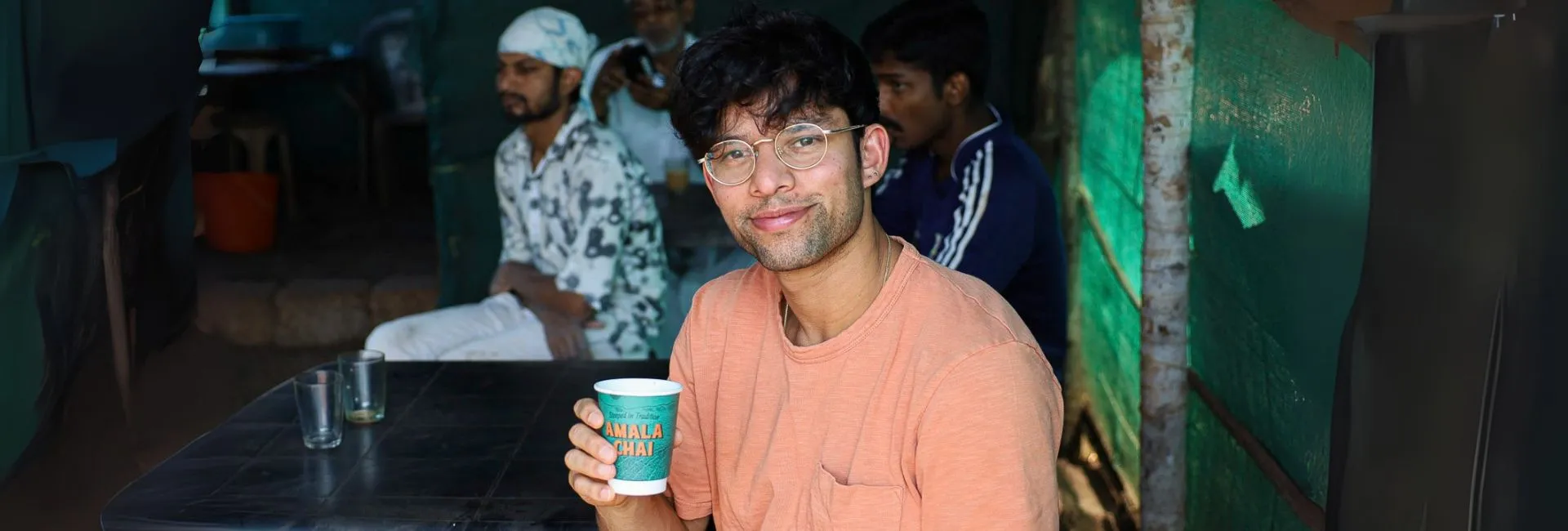(August 6, 2025) Dressed in a crisp bandhgala jacket over a white shirt, Indian-origin founder Akhil Patel stepped into history with a steaming pot of masala chai in hand. At the historic Chequers estate, where diplomacy is usually brewed over policy papers, Akhil served something warmer — chai and a bit of humour. As he offered chai to UK Prime Minister Keir Starmer and Indian Prime Minister Narendra Modi during their bilateral talks on the UK-India trade deal, he quipped, “From one chaiwala to another,” – a playful nod to PM Modi’s humble beginnings. In that light moment, Akhil stirred together humour, heritage, and history over a shared cup of tea.
From chai stall to spotlight: Akhil Patel’s viral moment
The moment went viral when PM Modi shared a photo of Chai Pe Charcha with UK PM Keir Starmer and Akhil Patel. Overnight, the founder of Amala Chai found himself in the spotlight, as his humble tea stall became the unexpected stage for a global diplomatic moment. “It was a surreal moment,” Akhil tells Global Indian. “One often sees these politicians on media, and suddenly they are in front of you, and you are serving your chai to them. It was incredible,” smiles the 30-year-old.
View this post on Instagram
When Akhil was invited to set up a chai popup at Chequers, he had no idea he would be serving masala chai to the prime ministers of two nations. “When I initially received an email from the UK government a week about the chai pop-up, I honestly thought it was a spam,” he laughs. It wasn’t until the follow-up call that he realised the event was part of the UK-India trade deal celebrations. Still, the guest list remained a mystery. “I had no idea who all would be present, so I went with the expectation of having my chai pop-up in Chequers,” he says. There were six other brands present and the first wave of ministers and business leaders arrived, he got to work. Then, to his surprise, he saw PM Modi and PM Starmer walking towards his stall. “Suddenly it was me and those two in front of me. That’s how it ended up.”
That moment turned Akhil into an overnight star and brought well-deserved attention to Amala Chai. The brand isn’t just about serving authentic chai — it stands for fair pay, sustainability, and celebrating the work of regenerative farmers in Assam and Kerala. Amala Chai pays these growers up to four times the market rate, ensuring every cup is rooted in care, craft, and purpose. “It’s my grandmom’s recipe — one I personally sourced and built the brand around,” says Akhil. “What’s been really heartening is the response. People have connected not just with the chai, but with our story. It’s resonated deeply, especially with Indians back home and British Indians. They’ve gravitated toward what we stand for, not just the viral moment. It’s been amazing — a great way to propel the business in a positive way and not be swept away by all the noise but also use it to take the mission forward,” adds the teapreneur.
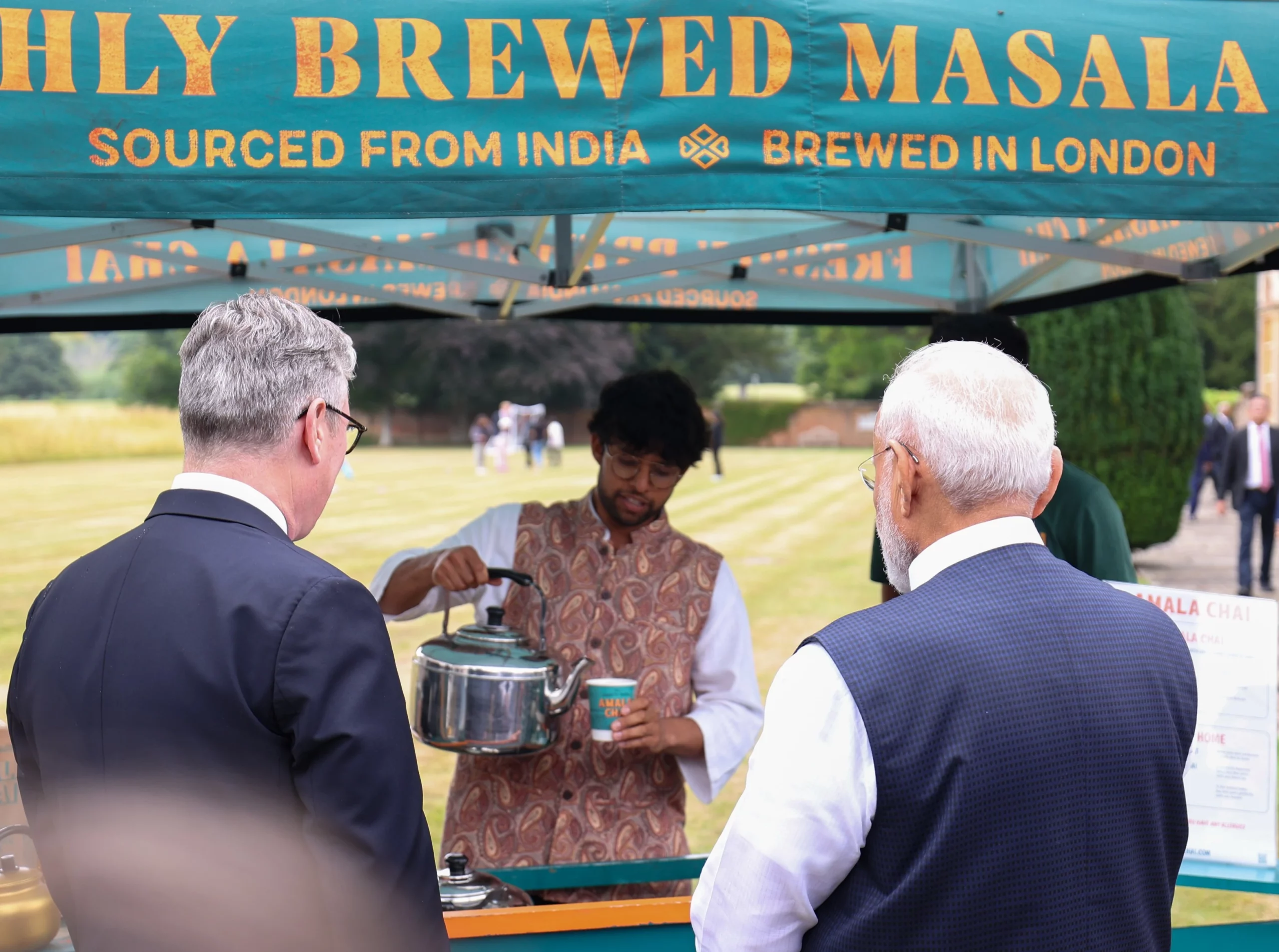
PM Modi tweeted this photo as Chai Pe Charcha
Chai, identity, and a journey that started in Leh
With roots in Gujarat, Akhil comes from a family shaped by migration. His parents were born in Kenya — his father moved to the UK at age 10, and his mother arrived at 16. “My home culture is totally Indian but I went to a British school. It was about trying to find your identity – as an Indian and partially British.”
Growing up, chai was a constant in Akhil’s life. He would watch his dad brew tea for his mom every morning, and every visit to his grandma’s home began with the familiar call: “Can we put some chai on?” But it wasn’t until a trip to Leh-Ladakh in 2018 that chai took on a deeper meaning. “I was drinking a lot of chai while travelling, and it just clicked,” he recalls. “When I got back, I realised I couldn’t find that same authentic cup anywhere outside my home. Most places were serving chai lattes and it just wasn’t the same.”
Rewriting the story of Indian tea in the UK
That’s when Akhil decided to change the narrative around Indian tea in the UK. Determined to bring authentic chai to a wider audience, he began experimenting with his grandma’s recipe in his sister’s kitchen. “I had a gut instinct that people would resonate with it.”
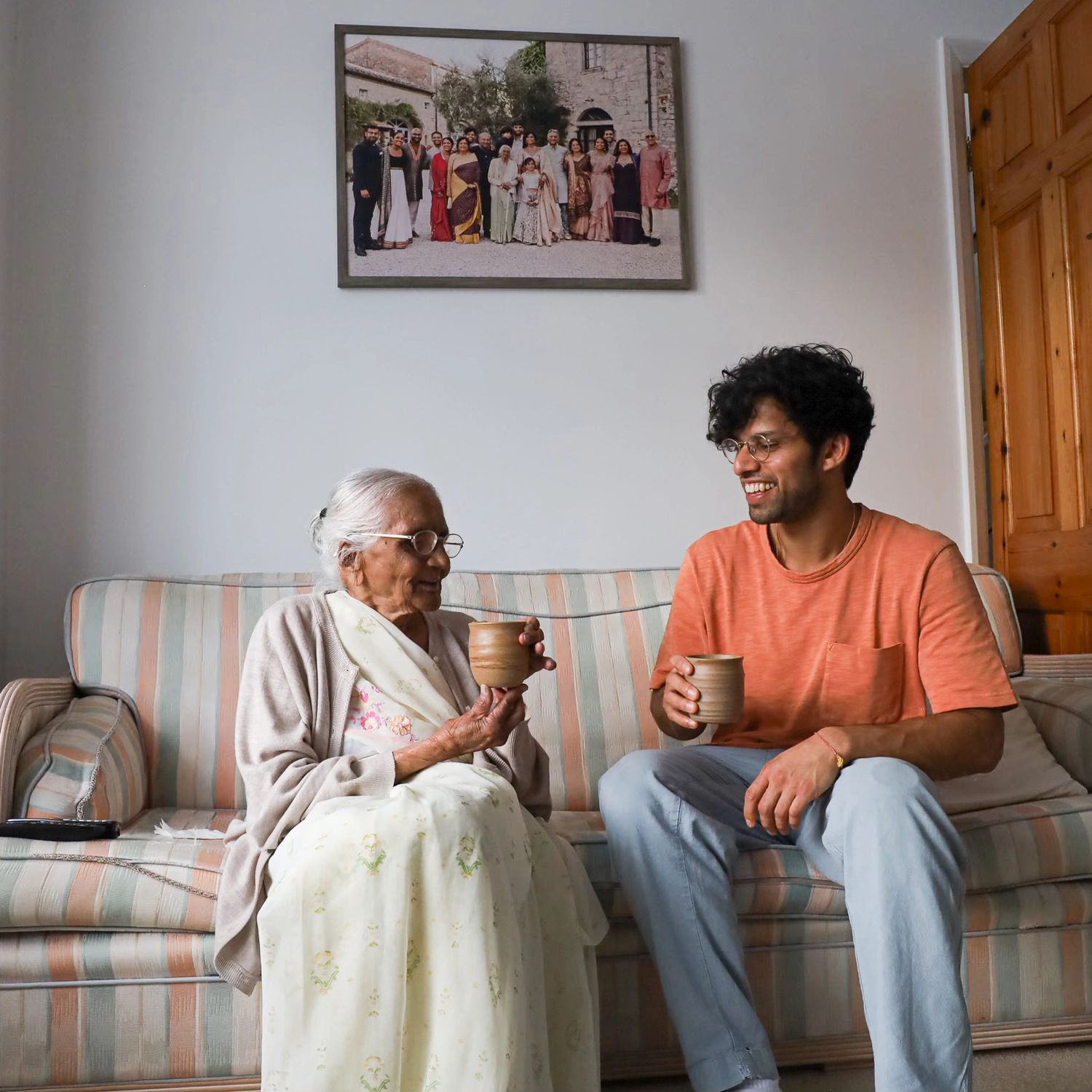
Akhil Patel with his grandmother
Akhil studied at the London School of Economics and Political Science and briefly worked as a data analyst before shifting gears toward entrepreneurship. It was his trip to Leh-Ladakh that proved to be a turning point. Inspired by the chai he had there, he returned home with a new sense of purpose. “I told my dad I wanted to start a chai stall on the street, and he was surprisingly supportive,” he recalls. What began as a fun weekend project quickly gained momentum. “I wasn’t just selling a product, I was selling an experience. I was recreating a feeling — pouring tea from large kettles, from a height, just like we do in India,” he recalls.
He also had a gut feeling the timing was right. “People are moving away from coffee and looking for alternatives,” he says. “In the UK, so many people have been to India — and we have British Indians and Indians as well. Let’s be real, the best caffeinated drink in the world is masala chai. The flavour is unmatched.” Chai lattes, he admits, played an unexpected role in making the concept accessible. “We’re lucky the chai latte gave the world the word ‘chai’. It made it easier to talk to people who’d never heard of masala chai. We’d explain that the latte is a westernised take, but masala chai is how we make tea in India. It became part education, part experience.”
Brewing a business — and a new way to serve chai
To get things off the ground, Akhil kept it simple. “We started with just £2,000 to set up the pop-up stall,” he adds. “As soon as we launched, it became popular and we even earned some of that money back.” Being self-funded and bootstrapped helped them experiment without too many expenses, and gave them the confidence that it could grow into a full-fledged business.
Around that time, interest in chai was steadily growing. “Brands like Chaiwalla started popping up, and it felt like there was a whole movement forming,” Akhil says. “That kind of exposure made it the perfect moment to enter the tea business.” With so many already familiar with masala chai, he felt the time was right to go all in.” In 2019, he launched Amala Chai – a brand that doesn’t just sell chai but also experience. “We serve in tea pots so it feels like what you’d get in India.”
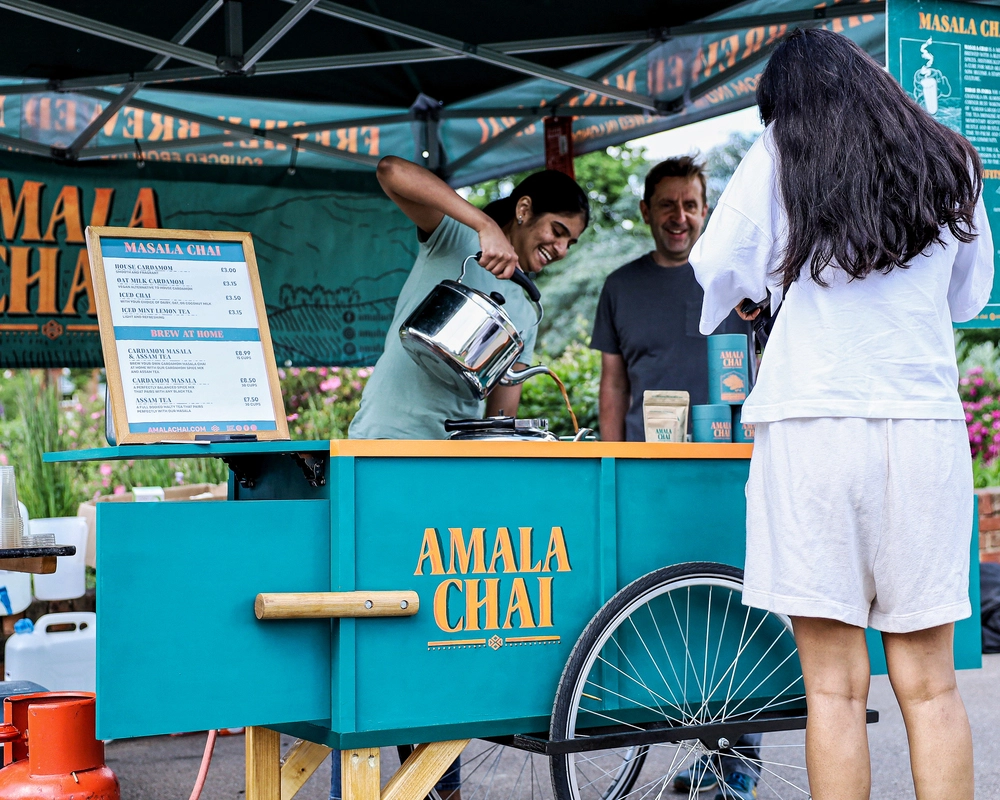
The first year was all about learning — and just as things were picking up, COVID hit. “It became a phase of trial and error, trying different channels and figuring out what stuck,” Akhil says. At the heart of it all was his commitment to building a product he truly believed in. “From the start, I knew I wanted to source our tea and spices directly from India,” he adds.
Not just profit — a business built on values
Over six years of building Amala Chai from the ground up, Akhil has faced his share of challenges. “From bringing in our first imports from India to dealing with containers getting held up, there was a lot to figure out,” he says. “As a first-time entrepreneur, I was getting advice from everywhere. But I had to learn—sometimes the hard way—that you can’t do everything at once.” In the early stages, he admits to making mistakes like launching too many products and spreading the business too thin. “Eventually, I realised it’s better to focus on one thing and build through that, rather than trying to be an overnight online success or get stocked everywhere. It takes time to find your brand identity and the right path. It’s been a crazy journey of finding our feet – which is our channel and who do we stand for as a brand,” says Akhil.
Through it all, Akhil has stayed committed to the brand’s core values—even when people suggest making the chai cheaper. “It’s expensive because of the initiatives we support with our farmers,” he says.
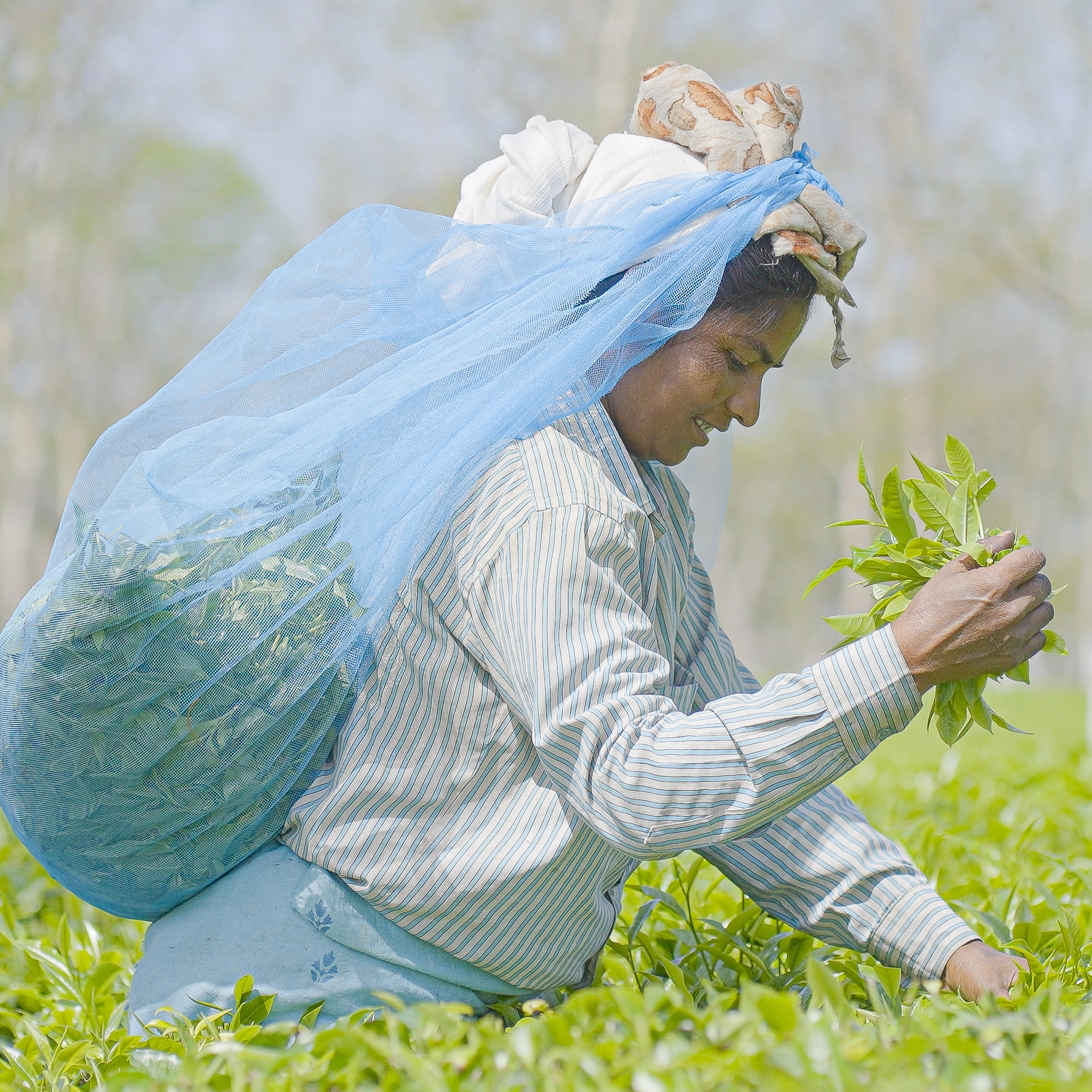
Woman picking tea leaves in Assam
From soil to cup: why Amala Chai works with regenerative growers
That commitment is central to Amala Chai’s purpose — to work directly with regenerative farmers, ensure fair pay across the supply chain, and challenge the norms of the global tea and spice trade. “Corporations dominate the tea and spice trade,” Akhil explains. “Traditionally, they were set up by British companies and they basically paid the pickers a minimum price,” says Akhil. “It allowed products to be sold cheaply across the world — but at a cost. Middlemen often cut corners, supplying poor-quality tea and spices while ignoring the farmers and the land. That’s why it’s so important to work directly with people who care about the soil, the biodiversity, and are committed to doing things ethically. Everyone in the supply chain should be paid fairly.”
This approach also shaped Akhil’s view on certification systems like organic and fair trade. “When we started, I thought those certifications were really important,” he says. “But over time, I realised how difficult and expensive they are for small growers to obtain, even when they’re already using organic practices. Just because they don’t have a certificate doesn’t mean their produce isn’t organic. It’s something consumers often don’t see, but we’ve chosen to work with people who truly care about quality and their community.”
“Our spice farmers grow in their own gardens to support their livelihoods,” says Akhil. “What they have in excess goes to cooperatives, where everyone is paid fairly, even if there’s a bad crop cycle. Their spices are incredible, and it’s just as important to support biodiversity and avoid mono-farming.” That approach led him to work with growers in Assam and Kerala who share the same values as the brand.
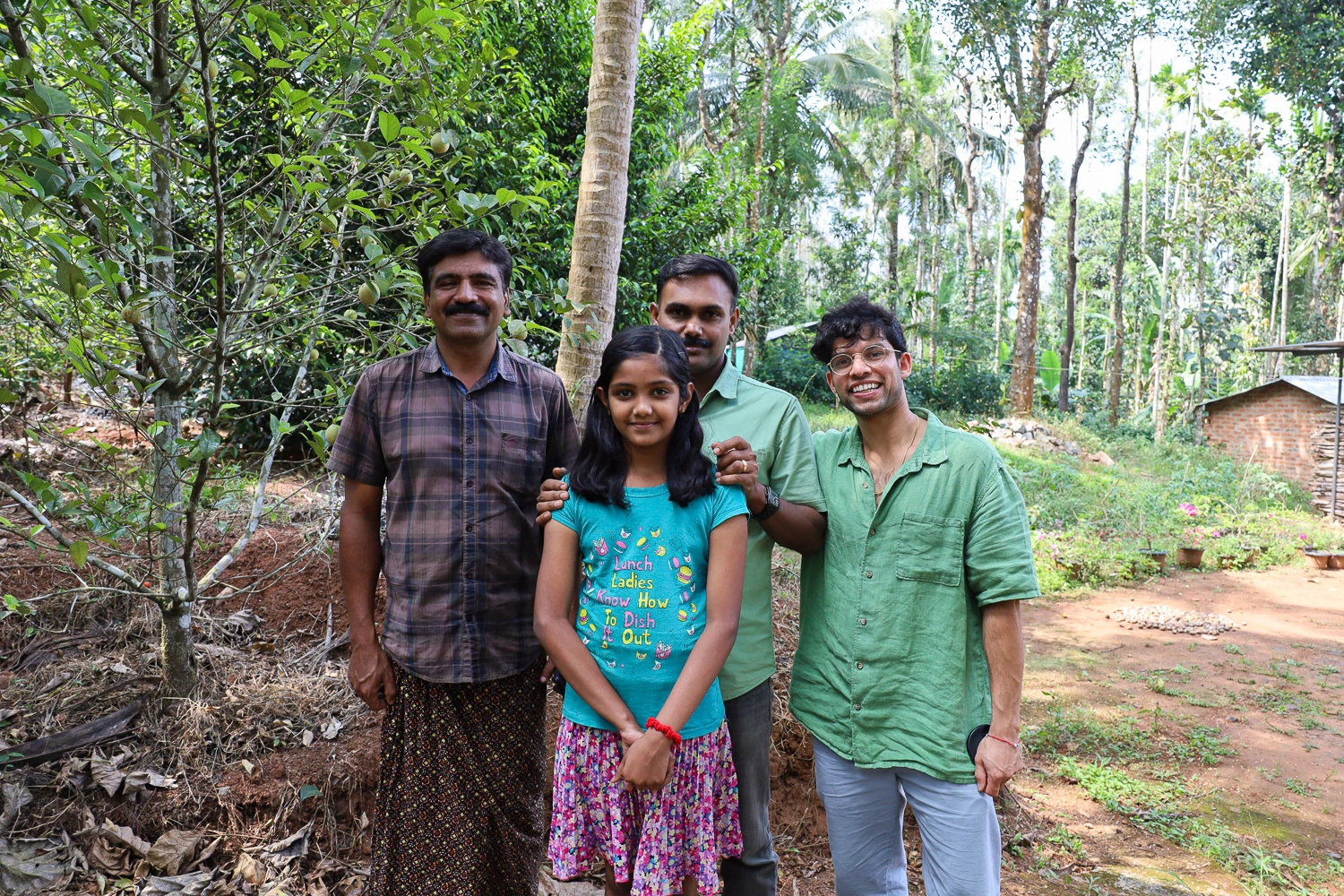
A brand that represents India — and gives back to it
While Amala Chai has always been rooted in authenticity, Akhil knew early on that it had to be more than just a chai brand. “Initially, we wanted to create a buzz around chai, but over time, we wanted the business to stand for something deeper,” he says. “Some of the best days I’ve had were meeting the farmers, visiting their farms, and tasting fresh tea at the factory. That’s when I knew this couldn’t just be about selling spices and tea. It had to be a business with purpose and impact, something that represents India but also gives back to it.”
As it stands today, Amala Chai operates through a mix of direct service, retail, and online sales. “We have chai carts that stay in the same location every day, we wholesale to retailers like Selfridges and Cocado, and we supply cafes so they can serve proper chai,” Akhil explains. “We also sell online.”
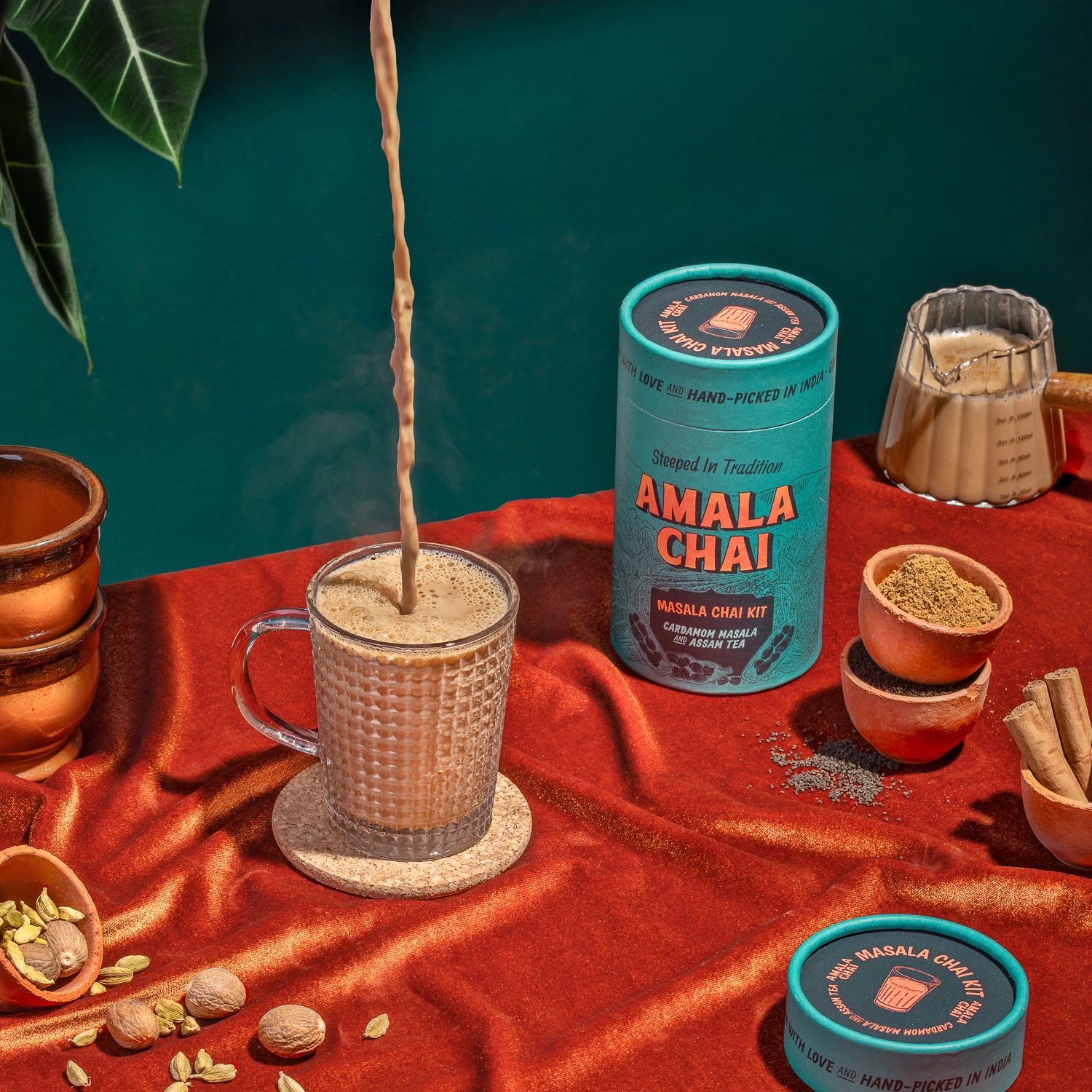
Amala Chai, Shop More
Looking ahead, the brand is taking a three-pronged approach: making chai more accessible, creating spaces for people to connect, and building community. “We’re planning to open a community-led café, and we’re also working on a customised wall structure to serve chai — which we’ll be launching in October in London,” he says. “It’s all about giving people more ways to enjoy chai and come together over it.”
After six years, what began as a weekend pop-up has grown into a brand with purpose, rooted in heritage, community, and care. Akhil has served close to half a million cups of chai — each one made with intention. “It’s a lot of tea, and hopefully there’s more on the way,” he says. For him, the goal isn’t just growth, but connection. “I want people, whether they’re Indian or British Indian, to feel a connection with the product. With chai, it’s got to be made properly. That’s the only way it feels right.”
Also Read: Ayan and Ani Sayal: Indian-American brothers bringing authentic masala chai to New Yorkers
Also Read: Deepinder Goyal: The resilient entrepreneur ever hungry for bigger challenges
